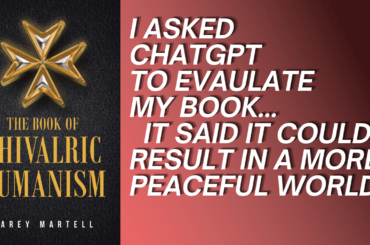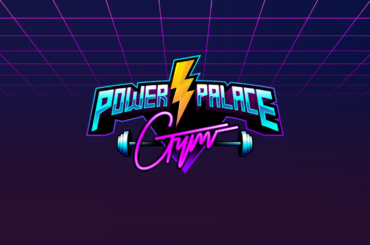As reported on by many sources such as Inc. , TubeFilter and many others, the internet is at war with the Fine Bros. and their new MCN ‘React World’. The main issue is the Fine Bros. have trademarked the word ‘React’ and announced that YouTubers who joined their network would be able to license their show format.
One of my best friends, Eric Perez (known as 8-Bit Eric on YouTube ) has been at the center of the controversy. For the past few months Eric found many of his own React videos taken down by the Fine Bros. MCN partner Fullscreen. Eric finally went public about the matter in a video, which many people (including myself) re-shared to reddit. The video went viral and ended up on the front page of reddit.
This encouraged a larger number of other folks in the same predicament to come forward. The Fine Bros. then posted a video responding to the allegations with the comments field disabled. In the video the guys insist they are not taking down any other YouTubers videos, but as many people such as Eric Periz have already provided evidence of the takedown notices and consequent strikes on their channels, the Fine Bros. video did nothing but escalate the anger. Currently the Fine Bros. channels have lost hundreds of thousands of subscribers, and the revolt of their audience does not appear to be ending anytime soon.
Much has been written about why the Fine Bros. actions have made people angry. For example, Tubefilter’s article points out the Fine Bros. have built a brand around their anti-corporate image of just being regular guys who love the YouTube community. The article also points out that both creators and audiences are generally very skiddish about treating channel operation as a business, so when people try to interject “corporate interests” into the social network people in the userbase have a tendency to be angry about it.
While I do believe Tubefilter’s analysis of the situation is correct, I cannot help but see the irony. YouTube is owned by one of the wealthiest companies in the world — Google. It generates hundreds of millions of ad revenue for YouTube every year. Similar to the video game industry, corporate interests have always been part of the YouTube community yet the average consumer ignores this reality in favor of the narrative corporations like Google have carefully crafted as part of their marketing efforts. While marketing YouTube as a place that is anti-corporate has allowed it to convince over a billion people to register YouTube accounts and invest into publishing videos to the service, this brand image simultaneously makes it challenging for YouTube to fully replace the old world of television as a large majority of next generation of stars don’t want anything to do with the business aspect of the entertainment business and shuns other creators for doing so — even though all creators monetize their videos through YouTube ad revenue.
Consequently the image of a YouTube Creator is an oxymoron; while rejecting many of the principles of operating a successful entertainment business, creators are otherwise okay with other aspects such as ad supported monetization — so long as they are separated from the actual act of servicing these ads. The majority of creators are okay with clicking a button to roll ads on their videos which pay about $0.001 per view, but if you ask them to make a 5 minute endorsement of a product and get paid $10,000, a large majority will rant about how that would be “selling out” — even if the ad that is shown on their video for fractions of a penny is from the same company they’d be endorsing.
From the perspective of a business that wants to maximize revenue opportunities, this contradiction seems crazy, but from the perspective of an artist who sees a difference between a personal endorsement and an interstitial they don’t even know is airing, it does make sense. Thus it’s important to understand where people are coming from when they make these decisions. The point of view is important.
I have a wealth of experience dealing with YouTubers and I have learned how to navigate the complex hallways of their community. This is probably because I started out as a creator myself, running my own YouTube channel and hustling for years just like the rest. I switched to the business side of the industry because I believe I’m the kind of person who can stand with a foot in both worlds — the world of the Millennial creators who wants to stand true to their artistic expression and faithful to the audiences who watch them — and the world of businesses who wish to use the influence of these stars to promote products for consumption by the market in order for the business to remain relevant.
It’s been my experience the path to convincing creators to adopt common industry business practices is easiest when you demonstrate to the creator how it will help them achieve their goals. This, of course, means that you truly understand their goals. The miscommunication only happens when you fail to do this.
Yet I will admit it’s a tough tight-rope to walk. I’ve met a lot of media executives who just give up in frustration because they can’t find common ground with these Millennial creators, and without understanding the creators they can’t successfully sell them on joining their network, promoting their product or starring in their feature film.
What is most interesting about the negative backlash to the Fine Bros. about React World is that the Fine Bros. are indisputably among the most successful YouTube creators. They had managed the tight-rope for many years, and skillfully built a media business from an audience that generally despises traditional media business practices. The problem here is that they over-stepped the bounds of tolerance — they divorced themselves from the principles which both YouTube creators and YouTube viewers believe are sacred.
The reaction from the Fine Bros. audience and fellow creators was predictable and there was no way to spin the hard sell which I paraphrase as “we’re trademarking React and if you want to do Reaction videos, you need to give us a cut“. Sure, it is common in television for studios to license show formats among one another, but this is not due to any legal requirement to do so. It is well established that a show format cannot be copyrighted, trademarked nor patented. The only reason studios and stations license show formats to make local versions is because of the mafia-like way the entertainment industry operates; if a station makes their own version of a show that a rival studio thinks is their IP, the studio will punish the station by refusing to license shows the station needs to fill their time-slot. Or worse the corporate entity that owns the studio will refuse to advertise on the station they think is infringing on their show format. The rules of show format licensing didn’t come about because of any governmental law, but rather to prevent outright war between mega-powerful conglomerates who underwrite the industry.
The Fine Bros. went awry by thinking YouTubers could be similarly pressured into licensing the Fine Bros. “React” show format, or that they’d even want to. The ‘React World’ value offer was inherently flawed as it relied on expecting anti-corporate creators to adopt a very corporate mindset which benefited them in no possible way. The Fine Bros. may have started out as humble creators but this move shows they have completely forgotten their roots. It’s clear they no longer understand the psychology of the average YouTuber and this is why could not produce a service offering for their MCN that would be embraced. Without understanding their potential customers they could not hope to create the perception of value.
What is happening right now should serve as a friendly reminder to MCNs that failure to understand the customer — the YouTube creators — is a costly mistake. You can’t pressure these people into accepting a bad offer; your offer has to be deemed genuinely useful to the creator or they will, at best ignore it but at worse crucify you for the insulting insinuation that they are too dumb to realize your offer is no good.




